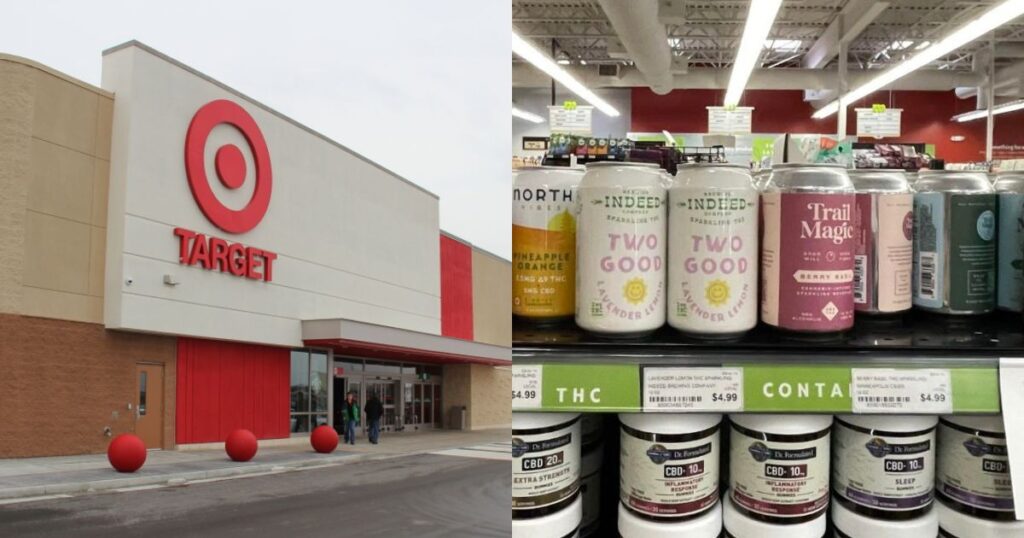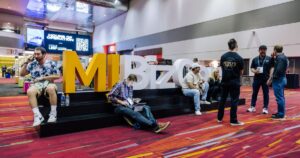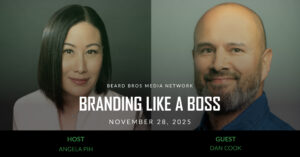Key Takeaways
- Hemp-derived beverages emerged after the 2018 Farm Bill legalized hemp, creating a gray market for cannabinoids like THC.
- Minnesota led the way by passing H.F. 4065 in 2022, allowing THC drinks derived from hemp with strict dosage limits.
- Target’s recent pilot program introduces hemp-derived beverages to its stores, marking a significant retail shift in cannabis consumption.
- The market for hemp-derived beverages is projected to grow rapidly, appealing to wellness-conscious consumers.
- Minnesota serves as a model for broader state regulations, potentially paving the way for national sales of hemp-derived beverages.
When you see “THC” and “Target” in the same sentence, it’s fair to do a double take. The big-box retail giant known for home goods, baby clothes, and overpriced candles is now testing THC-infused beverages in select Minnesota stores. Yes, that’s right — the same aisles where you grab your LaCroix and kombucha could soon include low-dose, hemp-derived seltzers from brands like Cann, Wynk, Wyld, and Trail Magic.
What sounds like a stoner’s daydream is actually the latest evolution of a billion-dollar industry quietly rewriting the rules of cannabis consumption — without breaking federal law.
This isn’t about bongs or blunts. It’s about bubbles, branding, and beverages that deliver a light buzz without the stigma — and it all started with hemp.
The Hemp Loophole That Changed Everything
To understand why Target can sell THC drinks in Minnesota, we’ve got to rewind to 2018 — when the U.S. quietly legalized hemp through the Farm Bill.
By redefining hemp as any cannabis plant containing no more than 0.3% delta-9 THC by dry weight, Congress unintentionally created a massive gray market for cannabinoids like delta-8, delta-9, and THC-O, so long as they were derived from hemp.
For years, hemp was an afterthought — rope, CBD oil, and niche wellness products. But once chemists figured out how to extract psychoactive compounds from hemp and package them in gummies, chocolates, and sparkling waters, a new industry began to bubble up.
These hemp-derived products walk the tightrope between federal legality and state-level cannabis control. And as traditional marijuana remains federally illegal, hemp THC emerged as a kind of legal cannabis for the masses — available online, shipped across state lines, and increasingly, sold in retail stores.
Why Minnesota Became Ground Zero for Hemp THC
Enter Minnesota.
In 2022, state lawmakers passed H.F. 4065, officially allowing the sale of edible cannabinoid products — including THC beverages — so long as they were derived from hemp and didn’t exceed 5 mg of THC per serving or 50 mg per package.
In a state where adult-use cannabis wasn’t yet fully rolled out, this law created the first real legal framework for hemp THC beverages in the U.S. — and businesses wasted no time capitalizing on it.
Breweries began serving THC seltzers on tap. Restaurants added “elevated” cocktails to menus. Dispensaries and convenience stores lined their coolers with bright cans boasting natural flavors, low calories, and a light lift.
Minnesota’s experiment didn’t just work — it exploded. The state became a test market for the future of cannabis consumption, one that caught the attention of major distributors, investors, and now, corporate America.

Timeline: How Hemp-Derived THC Drinks Hit the Mainstream
Here’s the quick (and wild) ride from hemp legalization to Target’s THC rollout:
2018 – The Door Cracks Open
- Dec. 20: The Farm Bill removes hemp from the Controlled Substances Act, legalizing hemp-derived cannabinoids nationwide (as long as delta-9 THC stays under 0.3%).
- Hemp farmers rejoice; regulators panic. A new, unregulated THC market is born.
2022 – Minnesota Lights the Fuse
- July 1: Minnesota’s H.F. 4065 takes effect, legalizing hemp-derived edibles and drinks.
- THC seltzers flood shelves almost overnight, capped at 5 mg THC per serving and 50 mg per package.
- The state’s thriving craft beer scene pivots, turning taprooms into THC lounges.
2023 – The First Major Retailers Say “Why Not?”
- November: Total Wine & More becomes one of the first major U.S. chains to sell hemp-THC beverages, starting in Minnesota stores.
- National attention follows, as the drinks outperform early projections and avoid major regulatory backlash.
2024 – THC Drinks Go From Novelty to Normal
- Breweries and bars across Minnesota embrace THC seltzers on draft.
- Consumers discover what cannabis insiders have known for years: low-dose THC drinks offer a mild, social buzz — no hangover, no stigma, no smoke.
- Other states like Texas, Tennessee, and Florida quietly begin allowing hemp-derived THC beverages under similar dosage caps.
2025 – Target Makes the Move
- October: Target begins selling hemp-derived THC beverages in ~10 Twin Cities stores, marking the first time a Fortune 500 retailer has entered the cannabinoid beverage category.
- Brands include Cann, Wyld, Trail Magic, Birdie, and Wynk, all compliant with Minnesota’s hemp beverage laws.
- Congress simultaneously debates tightening the Farm Bill to restrict psychoactive hemp products — adding regulatory pressure even as mainstream adoption accelerates.
In other words, Target didn’t just jump into THC drinks — they jumped into the crossfire of a national cannabis identity crisis.

Why Big Retail Is Betting on Hemp THC
From a business perspective, Target’s move is pure strategy. The functional beverage market, think CBD drinks, adaptogens, and low-dose THC, is growing at lightning speed.
According to Euromonitor, the U.S. hemp-THC beverage category could hit $4.1 billion in sales by 2028, driven by wellness consumers who prefer a measured, sessionable experience over alcohol.
In other words: this isn’t about “stoners.” It’s about mindful drinkers — adults who want the edge off without the blackout.
And major retailers are watching the numbers. In Minnesota, THC beverage sales hit $50 million in their first full year, even before traditional cannabis dispensaries opened statewide.
That kind of growth gets boardrooms buzzing — especially when the federal government still hasn’t figured out how to regulate cannabis across state lines.
What Makes These Drinks ‘Legal’ — for Now
The Target pilot, and every similar rollout, relies on the same legal distinction: the THC must come from hemp, and each product must stay under 0.3% delta-9 THC by dry weight.
That’s why many of these drinks use emulsified or nano-emulsified THC — it spreads evenly in water and keeps total THC levels technically compliant while still delivering a mild psychoactive effect.
It’s clever chemistry. It’s also a legal minefield.
The DEA, FDA, and Congress are all currently reviewing hemp regulations for the upcoming 2025 Farm Bill, with growing calls to close the “hemp loophole” that allows intoxicating products to be sold outside of dispensaries.
If lawmakers decide to redefine or restrict hemp THC products, the entire beverage category could shift overnight — forcing companies like Target, Total Wine, and countless smaller brands to retool or retreat.
But for now, the rules stand — and hemp-THC drinks are thriving in the gap.
From Booze to Buzz
What’s happening with THC drinks mirrors a larger cultural movement.
Alcohol consumption is declining among millennials and Gen Z, who are trading IPAs for CBD sodas and THC seltzers. Cannabis beverages fill that sweet spot between relaxation and control, offering a 30–60 minute onset, low calories, and no next-day regret.
They also blend seamlessly into modern branding: pastel cans, clean typography, “natural flavor” promises, and microdose transparency.
Indeed, the days of red eyes and tie-dye are over. The new cannabis consumer is health-conscious, design-savvy, and not interested in being high all day — just present, balanced, and maybe a little lifted.
Minnesota: A Model for National Expansion
It’s no accident Target’s pilot started in Minnesota. The state’s cannabis regulations are unusually balanced — clear enough to allow compliance, but flexible enough to let innovation happen.
Where other states panic and ban hemp-THC outright, Minnesota took a regulate-and-tax approach that encouraged businesses while protecting consumers.
That pragmatism is paying off. As other states (like Michigan, Wisconsin, and Illinois) observe the Minnesota model, they’re starting to draft their own hemp beverage frameworks.
If the federal government doesn’t interfere, hemp-THC beverages could become the first truly national cannabis product category — sold everywhere from grocery stores to gas stations.
What Comes Next
If Target’s test goes smoothly — meaning no lawsuits, no consumer backlash, and solid sales — expect other major retailers to follow. Think Walmart, Costco, and Kroger testing their own THC beverage lines within a year.
Meanwhile, big alcohol companies (Molson Coors, Constellation Brands, AB InBev) are already investing heavily in cannabis beverage startups, hedging bets as drinking habits shift.
For cannabis operators, this could be the bridge to normalization — the moment cannabis moves fully into the mainstream through a format everyone already understands: a cold can in the fridge.
Target selling THC drinks isn’t just another quirky retail headline. It’s a turning point — proof that marijuana, in its hemp-derived form, has gone fully mainstream.
Ultimately, whether this represents a steppingstone to broader legalization or just another loophole remains to be seen. But make no mistake, this move signals a future where you won’t have to visit a dispensary to enjoy a little plant-powered relaxation.
You’ll just stop by Target, grab your groceries, and pick up a six-pack of THC seltzers on the way out.
Welcome to the new high of retail.
















